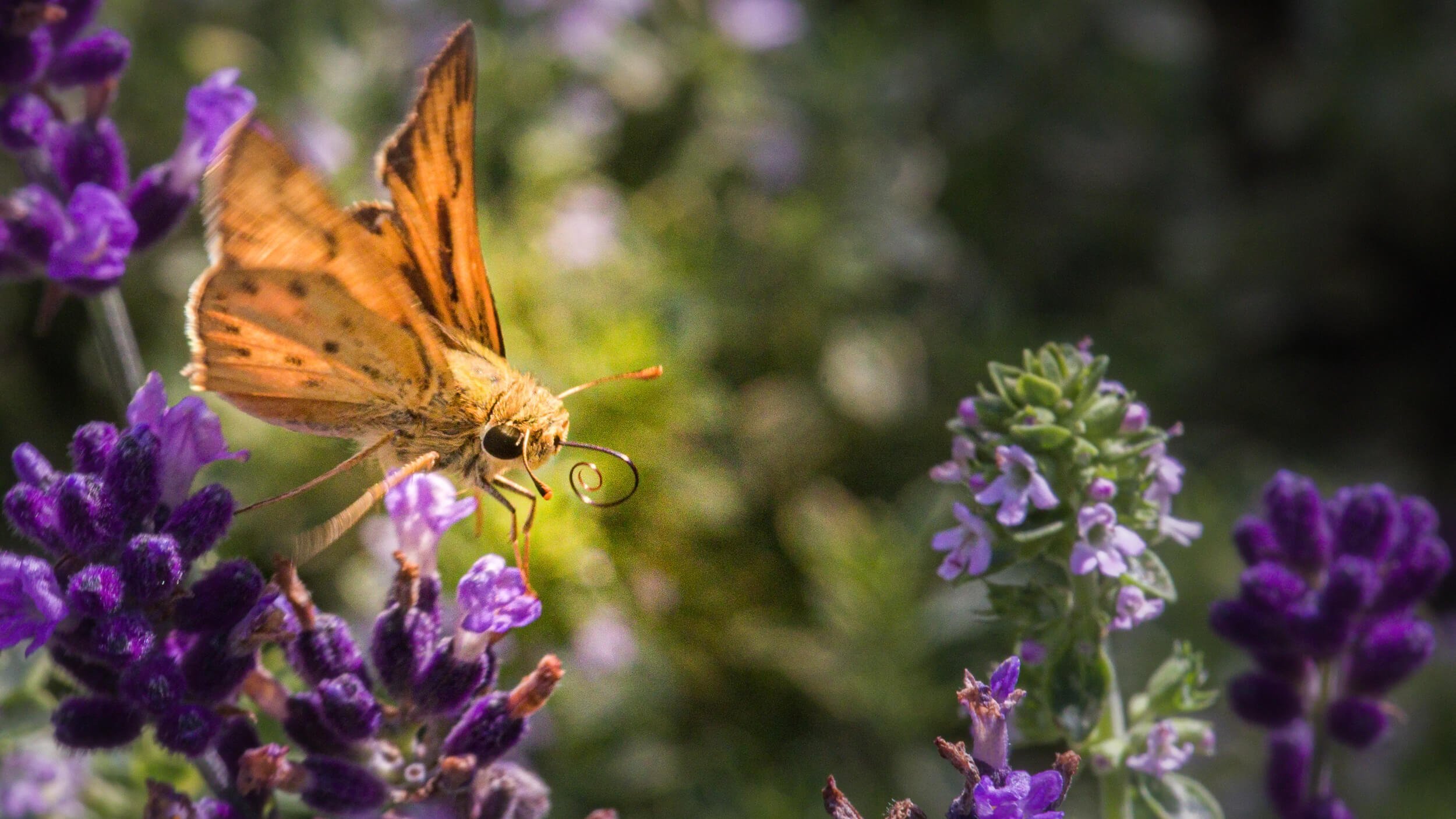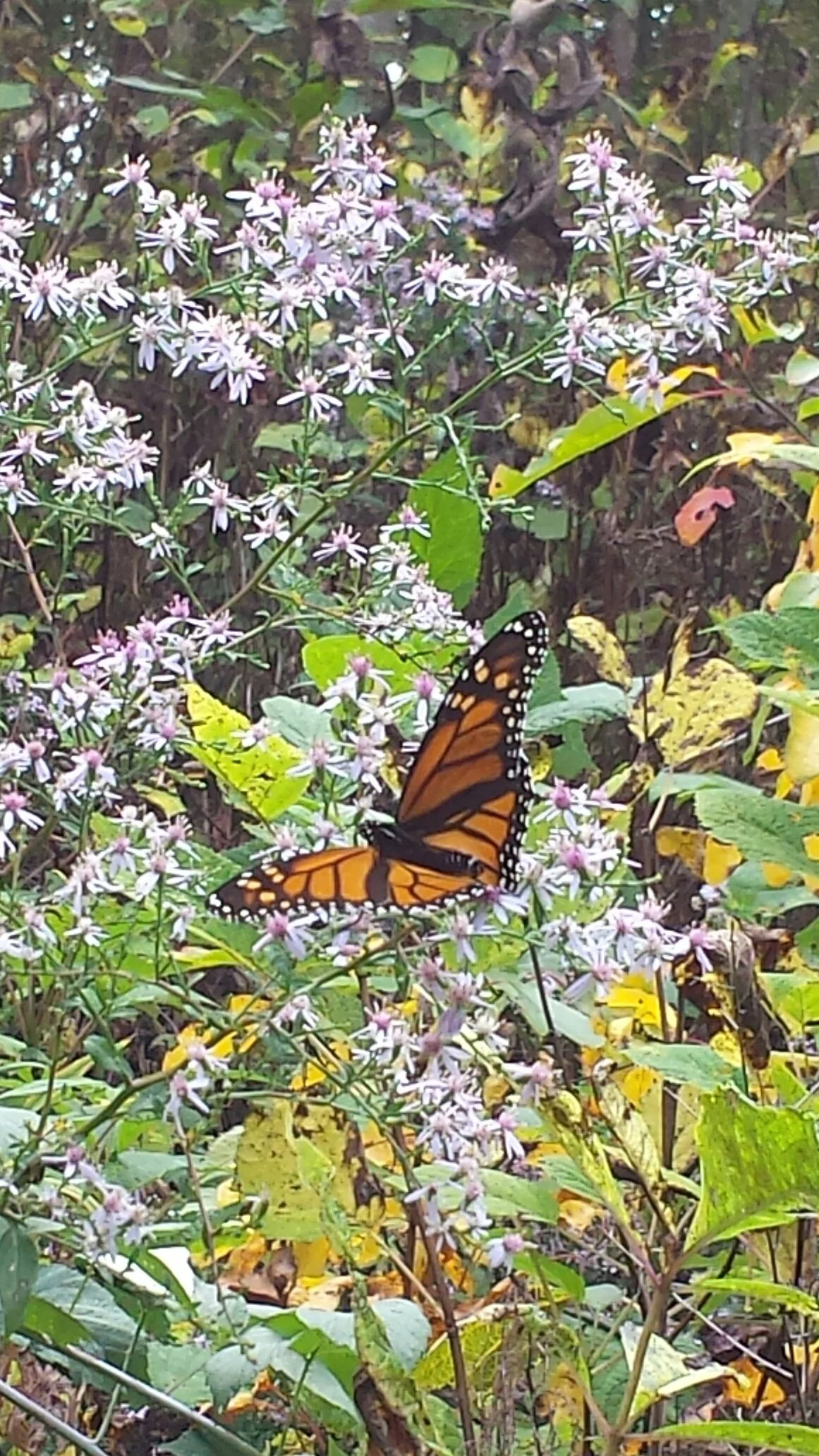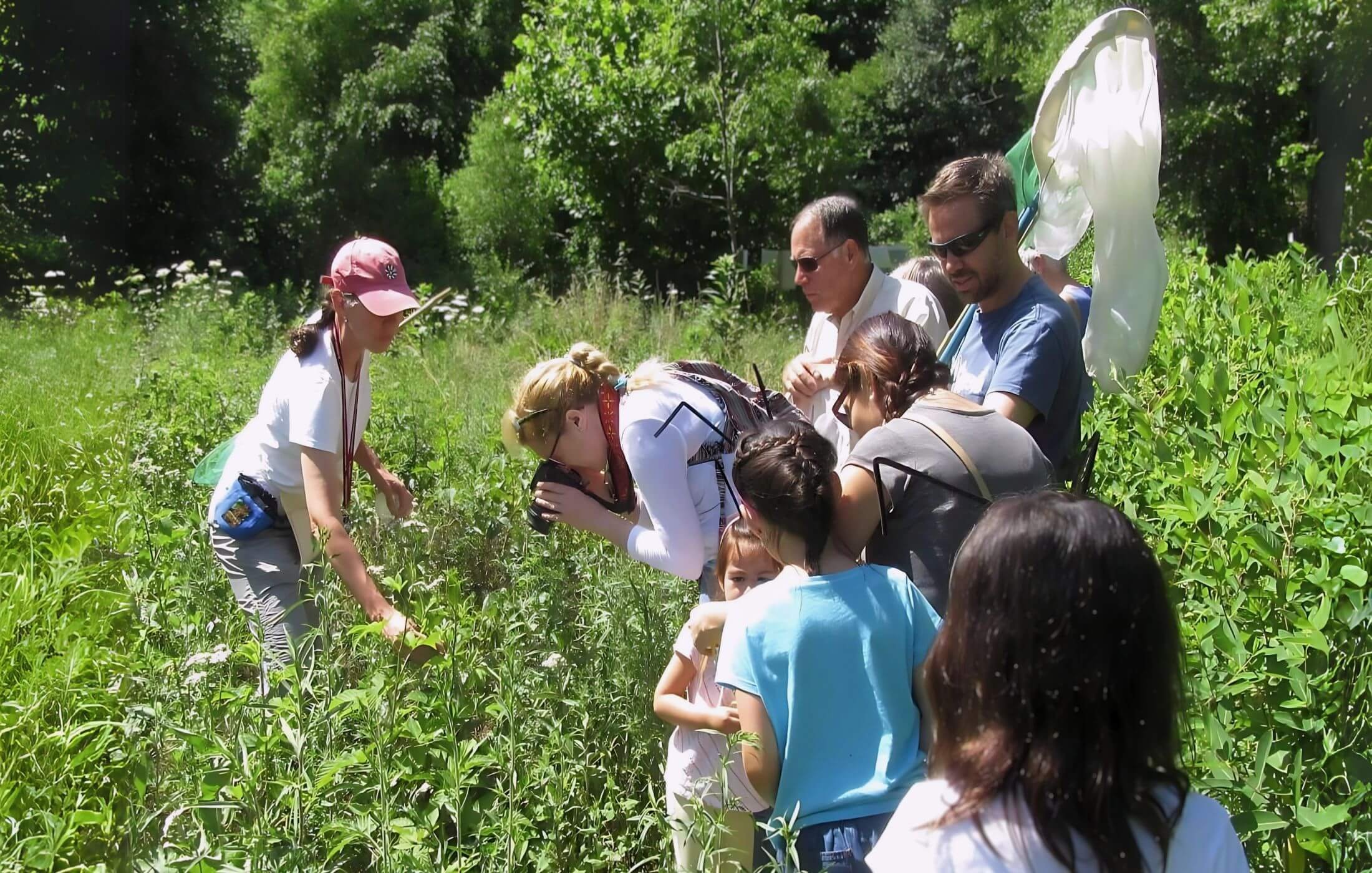
Past Events
Photo: Skipper butterfly by Joe Adams.
Exotic invasive plants can quickly supplant the native plants our pollinators co-evolved with because they often arrive here without the predators that kept them in check back home. Learning the best techniques for removing the worst actors, without harming pollinators in the process, can be tricky, but not impossible.
Ever heard the expression, “There’s someone out there for everyone?” Co-evolution took care of that for plants and their pollinators over millions of years. That’s why flowers come in all shapes, sizes and colors and so do their pollinators!
Those crafty bees have evolved to nest in creative ways depending on their species. Guess where mining bees nest? How about carpenter bees? What about squash bees? This class gives an overview of the variety of bee nests and provides pointers for selecting the best cavity nesting bee houses, just in time for those early spring mason bees.
We like the leaves for shade and fall color, but they seem to become our dreaded enemy once they fall to the ground. If you want pollinators in the spring, keeping those leaves in your yard is essential. And if you want leaves, you better plant some trees—but which ones? This class teaches the role tree leaves (and dead plant stems) play in the lives of pollinators year-round and how to have a tidy yard–with lots of fallen leaves!
Join the Asheville Botanical Garden’s garden manager, Sarah Coury, to learn about ethical seed collection practices, and seed cleaning, storage, and propagation tips.
October is a busy time for monarch butterflies as they undergo their fall migration from Eastern North America to Mexico. Western North Carolina is a pit stop for some of these travelers. Celebrate these colorful creatures with an amazing collection of activities and events. Blue Ridge Naturalist instructor, Dan Lazar, is scheduled to speak.
Visit the Blue Ridge Community College Horticulture Program’s Fall Plant Sale being held as part of Farm City Day at Jackson Park. Mums, fall asters, violas, pansies, mixed fall planters, perennials, shrubs, trees and succulents are perfect for gift giving. Many natives to support pollinators will also be available, including several hard-to-find species.
Celebrate the monarch butterfly during its migration and bring attention to the species’ declining numbers. Gorges State Park lies along the monarch’s migratory route. The butterflies can be seen in late September each year flying over the park’s visitor center on their way south to the high-elevation fir forests of Mexico’s Neovolcanic Mountains, where they overwinter until early spring.
Join Patchwork Meadows in Black Mountain for peak monarch migration viewings.
Shop for all your favorite perennials, shrubs, trees and so much more at Bullington’s annual fall plant sale.
Join Patchwork Meadows in Black Mountain for peak monarch migration viewings.
Live music, education activities celebrating our pollinators, native plants, and much more!
Celebrate Hispanic Heritage Day with us at the Hendersonville Farmers Market. From the upbeat rhythms to the delicious baked goods, connect, celebrate, and share in the joy of heritage and community spirit! Visit the Milkweed Meadows Farm tent to view Monarch life cycle educational displays, purchase native milkweeds + other pollinator-friendly plants, and participate in the Symbolic Monarch Migration art activity for kids.
Join Patchwork Meadows in Black Mountain for peak monarch migration viewings.
Grab your binoculars because it’s migration celebration time! Our annual feathered frenzy is back, and you’re invited to join the fun. Celebrate the magic of fall bird and butterfly migration with a full day of family-friendly activities, live raptor demonstrations, beginner bird walks, a hawk watch, and so much more. Whether you’re a seasoned birder or just bird-curious, this is our biggest birding event of the year and you won’t want to miss it!
The Asheville Botanical Garden and numerous local plant vendors will offer a wide variety of native trees, shrubs, and flowers for fall planting. Signs will direct customers to the garden’s parking lot and to the designated overflow parking area at UNCA. Overflow parking lot is located at UNCA at 118 W.T. Weaver Blvd
Shop for all your favorite perennials, shrubs, trees and so much more at Bullington’s annual fall plant sale.
This class provides pointers on defining what is truly a pest and when and how to manage it with the least harm to pollinators. SPOILER ALERT: Insects sometimes viewed as pests, like wasps, are among the best pest managers, and diversity is a gardener’s best friend!
Garden Party Fundraiser - Dinner, Music, Garden and Milkweed Meadow tours, Pick your own cut flowers.
This class will cover everything from milkweed seed collection and stratification to raising monarchs responsibly, reporting monarch sightings, and tagging monarchs.
Classrooms with up to 30 participants in Asheville and Buncombe County are invited to participate in the 29th annual Symbolic Monarch Migration education program at no charge thanks to Bee City USA-Asheville donors and pollenteers.
Henderson County youth are invited to participate in the 30th annual Symbolic Monarch Migration education program at no charge thanks to Bullington Gardens, local volunteers, and sponsors. Any group (up to 30 participants) of youth located within Henderson County may take part in the program.
Did you know there are more than 177,500 different lepidoptera? This class explores the major butterfly and moth groups and their importance in our ecosystems.
You don’t have to travel to other continents to find amazing creatures— they could be right in your backyard! They are just small. This class is to help you learn to observe and identify pollinators in your garden or wherever plants are blooming.
You don’t have to travel to other continents to find amazing creatures— they could be right in your backyard! They are just small. This class is to help you learn to observe and identify pollinators in your garden or wherever plants are blooming.
Would you like to help with pollinator conservation by surveying for bumble bees? The Southeast Bumble Bee Atlas has teamed up with the MountainTrue Bioblitz at Hickory Nut Gap Farms for a field day! We will be conducting a bumble bee survey in their native pollinator gardens where anyone can practice catching bees and learning about identification.
Bee sweet! Create a smorgasbord of beautiful blooming plants and butterfly host plants that provide much-needed habitat for pollinators, butterflies, and hummingbirds. With an emphasis on native plants, these vibrant gardens are full of color, support wildlife, and bring you delight throughout the season. Even a small, dedicated habitat will call in the pollinators and transform your garden – bringing it to life. Plant it and they will come!
Meet our local pollinators! Learn about pollination and WNC’s most common pollinators. We’ll discuss conservation concerns and simple steps you can take to help pollinators. Time permitting, we will go outside and explore which pollinators are visiting Reems Creek Nursery's certified pollinator garden.
Visit the Bee City USA - Asheville booth to learn more about the amazing pollinators that make our food possible. We’ll have a Scavenger Hunt for kids (and kids at heart) to see how many pollinator-dependent foods they can spot at the market.
The Center for Honeybee Research is hosting the Asheville HoneyFest where the winner of the International Black Jar Honey Contest will be announced. Always sure to entertain with a wide variety of live music, the Festival has a little something for everyone. The Asheville chapter of Bee City USA will be there to talk about the other 20,000 species of bees in the world that don’t make honey, but provide invaluable pollination services.



























